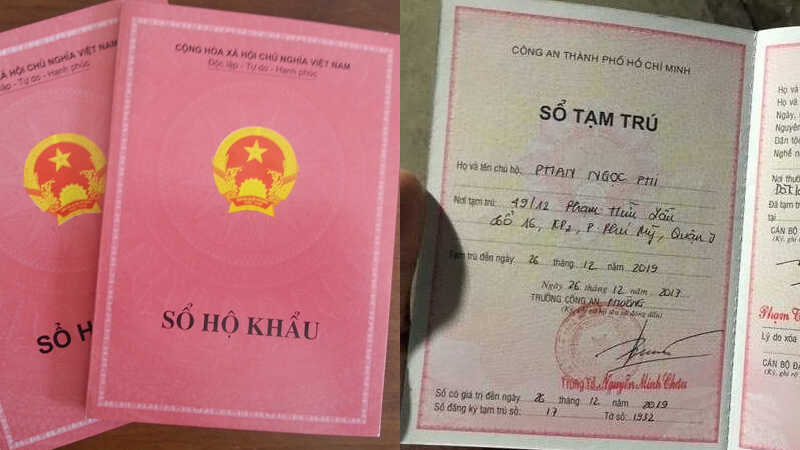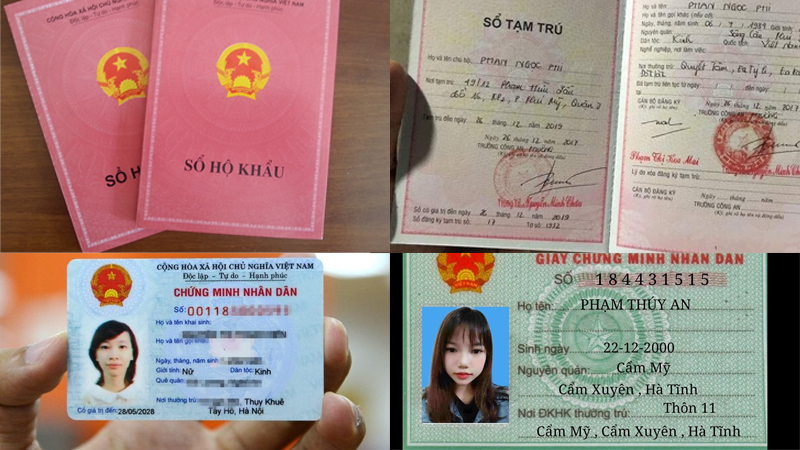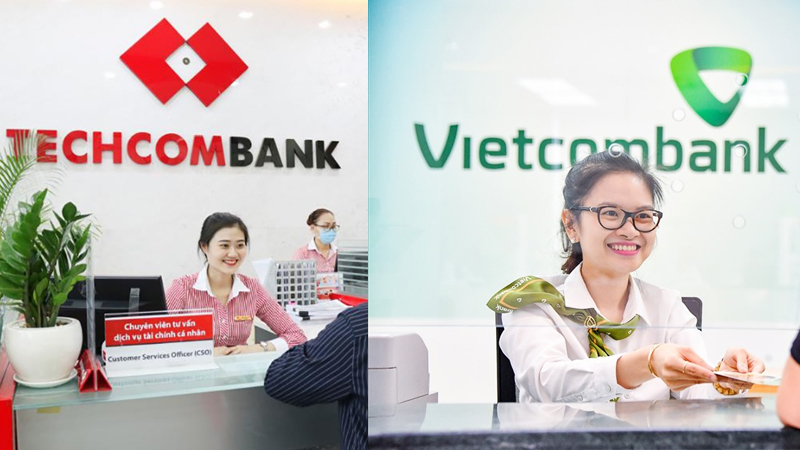If you’re considering taking out a loan from a bank using your red book as collateral, it’s important to understand the conditions and procedures involved. We will provide you with some essential information before proceeding with this type of loan.
1 Mortgage Loan Conditions
While each bank has its own unique requirements for mortgage loans, there are some standard conditions that apply when using your red book as collateral. These typically include:
-
The borrower must be a Vietnamese citizen of working age (20–65 years old) with a stable income of at least 3 million VND per month and the ability to prove their debt repayment capacity.
-
Possession of a permanent residence book or long-term temporary residence registration in the area where the lending bank branch is located.
-
At the time of the loan application, the borrower must not have any bad debts with the bank.
-
The collateral for the loan must be real estate with a red book or pink book (land ownership certificate) in the borrower’s name.
-
The intended use of the loan must be appropriate and feasible, and under no circumstances should the funds be used for illegal business activities.
 Permanent Residence Book and Temporary Residence Registration
Permanent Residence Book and Temporary Residence Registration
2 Procedures for Bank Loan with Red Book Collateral
 Identity Card, Permanent Residence Book, and Citizen Identification Card
Identity Card, Permanent Residence Book, and Citizen Identification Card
To apply for a loan using your red book as collateral, you will need to prepare the following documents:
-
Proof of ownership of the collateral: Identity card (valid for no more than 15 years); permanent residence book, temporary residence registration certificate; red book or pink book in the borrower’s name, or a purchase agreement.
-
Proof of income: Salary statement or utility bills (electricity and water) for the latest 3 months (for business employees, the requirement is at least 6 months); business license, and input/output invoices for economic activities.
3 Mortgage Loan Process
 Bank Transaction
Bank Transaction
The process of obtaining a mortgage loan using your red book as collateral typically involves the following steps:
Step 1: Register for a mortgage loan at your chosen bank. Each bank has its own advisors who can provide information about their products, including conditions, procedures, and interest rates. They will also guide you on how to prepare a complete loan application package.
Step 2: The bank will evaluate and approve your application.
Step 3: The bank will appraise and assess the value of the collateral (red book) for the loan.
Step 4: Based on the appraised value of the collateral, the bank will determine the maximum loan amount you are eligible for. You will receive a response regarding the approval of your application as soon as possible.
Step 5: Return to the bank to sign the credit contract and complete other transactions, such as notarization of the secured asset, registration of secured transactions, etc.
Notarization
Step 6: The bank will disburse the loan. You must use the loan for the stated purpose and fulfill your obligation to repay the debt to the bank on time.
4 Mortgage Loan Interest Rates
 Mortgage Loan Interest Rates at Banks
Mortgage Loan Interest Rates at Banks
In reality, different banks and financial companies will offer varying interest rates for mortgage loans, typically ranging from 6% to 8% per annum during the promotional period. After this period, the interest rate may be adjusted upward by 3 to 5%, depending on the lending policies of each bank.
OCB Bank
-
Interest rate (%/year): 6%.
-
Limit: 70% of the value of the secured asset.
-
Loan term: 10 years.
Techcombank
-
Interest rate (%/year): 6.7%.
-
Limit: 95% of the value of the secured asset.
-
Loan term: 8 years.
TPBank
-
Interest rate (%/year): 6.9%.
-
Limit: 70% of the value of the secured asset.
-
Loan term: 10 years.
VietinBank
-
Interest rate (%/year): 7%.
-
Limit: 70% of the value of the secured asset.
-
Loan term: 20 years.
Vietcombank
-
Interest rate (%/year): 7.7%.
-
Limit: 70% of the value of the secured asset.
-
Loan term: 10 years.
VPBank
-
Interest rate (%/year): 9.6%.
-
Limit: 70% of the value of the secured asset.
-
Loan term: 10 years.
ACB
-
Interest rate (%/year): 9.8%.
-
Limit: 75% of the value of the secured asset.
-
Loan term: 10 years.
MSB
-
Interest rate (%/year): 6.5%.
-
Limit: 80% of the value of the secured asset.
-
Loan term: 7 years.
SHB
-
Interest rate (%/year): 7.2%.
-
Limit: 75% of the value of the secured asset.
-
Loan term: 5 years.
Shinhan Bank
-
Interest rate (%/year): 7%.
-
Limit: 70% of the value of the secured asset.
-
Loan term: 7 years.
5 Banks Offering Mortgage Loans
The following is a list of banks that provide mortgage loans using red books as collateral:
BIDV
– Long loan term, up to a maximum of 20 years.
– High loan limit, up to 85% of the value of the asset (for production and business purposes) or 100% of the value of the asset for purchasing a house or a car.
– Promotional interest rate for the first 12 months for house or car purchases, with low and flexible interest rates.
 Mortgage Loans at BIDV and Agribank
Mortgage Loans at BIDV and Agribank
Agribank
– Flexible loan limit, up to 85–90% of the loan amount required.
– Flexible loan term, ranging from 3 to 15 years.
– Quick and simple procedures for loan packages in rural areas to develop agriculture.
– Attractive interest rates, starting at 7.5%/year. The interest rate margin can fluctuate between 3.5–4%/year after the promotional period.
Techcombank
– Loan limit of up to 80% of the value of the secured asset.
– Flexible loan term, ranging from 5, 7, 10, or 20 years.
– Installment interest rate calculated based on the reducing debt balance.
– Competitive interest rates, ranging from 7.5–8.3%. Simple and fast loan procedures.
 Mortgage Loans at TechcomBank and Vietcombank
Mortgage Loans at TechcomBank and Vietcombank
Vietcombank
– Loan limit of up to 70% of the value of the secured asset, or up to 100% for house or car purchases.
– Competitive interest rates, starting at 7.5%/year.
– Flexible loan term, ranging from 5, 10, or 15 years.
– Installment interest rate calculated based on the reducing debt balance.
– Fast and simple loan procedures.
VPBank
– Loan limit of up to 85% of the value of the secured asset.
– Attractive interest rates, starting at 7.4%/year, with possible adjustments over time. Flexible loan term, up to a maximum of 25 years.
– Installment interest rate calculated based on the reducing debt balance. Simple and fast loan procedures and conditions.
 Mortgage Loans at VietinBank and Sacombank
Mortgage Loans at VietinBank and Sacombank
HDBank
– For house or car purchases, loans of up to 100% of the required amount are offered, while other products are eligible for loans of up to 75% of the required amount. Interest rates start at 7%/year. Flexible loan term, ranging from 5, 7, 20, or 25 years. Installment interest rate calculated based on the reducing debt balance. Simple loan procedures and documents.
Vietinbank
– High loan limit, up to 3 billion VND (for business purposes) and 80% of the required amount for other loan purposes.
– Competitive interest rates, starting at 7%/year. Flexible and long loan term. Installment interest rate calculated based on the reducing debt balance.
 Mortgage Loans at VietinBank and Sacombank
Mortgage Loans at VietinBank and Sacombank
Sacombank
– Stable interest rates, starting at 7.5%/year.
– Unlimited loan limit, with the possibility of lending up to 100% of the value of the secured asset.
– Flexible loan term, ranging from 3 months to 20 years, for short-term, medium-term, and long-term loans. Support for various forms of mortgage loans, including red books, cars, and savings accounts.
– Diverse payment methods. Customers can choose to pay interest monthly, every 3 months, or every 6 months.
ACB
– Competitive interest rates, ranging from 7.5–9.8%/year.
– High loan limit, up to 10 billion VND, with the possibility of lending up to the full amount required for house or car purchases. Flexible and long loan term.



































